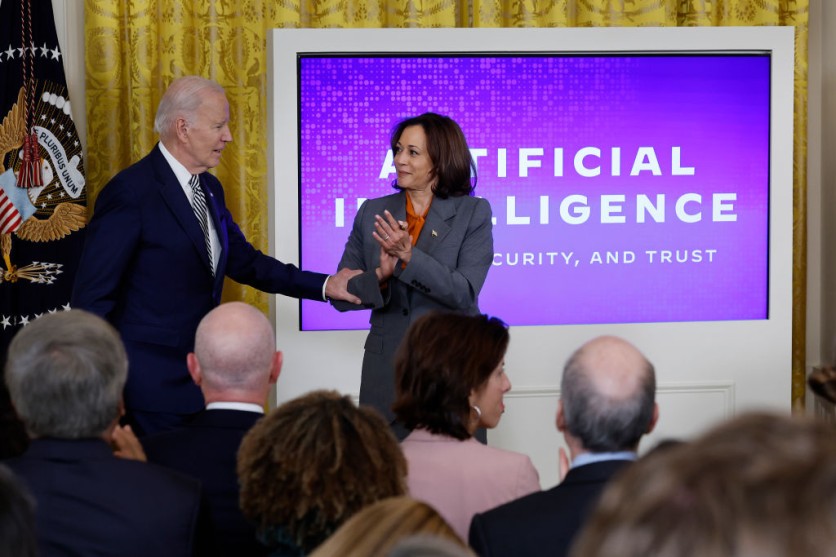The Biden administration has introduced the US AI Safety Institute Consortium (AISIC), a collaborative effort involving over 200 entities, including prominent tech companies like OpenAI, Google, Microsoft, Meta Platforms, and others.
According to a Reuters report, the consortium, housed under the US AI Safety Institute (USAISI), aims to support the secure development and deployment of generative AI, emphasizing the government's role in establishing AI standards and tools. This initiative aligns with President Joe Biden's October AI executive order, focusing on guidelines for red-teaming, capability evaluations, risk management, safety and security, and watermarking synthetic content.
The AISIC includes participants such as BP, Cisco Systems, IBM, Mastercard, Qualcomm, and major academic institutions, representing a broad collaboration. It responds to the Biden administration's directive to set standards for AI testing and address associated risks, with a focus on chemical, biological, radiological, nuclear, and cybersecurity risks.

Emphasizing Transparency to Ensure Safety
Moreover, as an extensive collection of test and evaluation teams, the consortium seeks to establish a foundation for a new measurement science in AI safety. Generative AI, known for creating content in response to prompts, has raised concerns about its impact on various sectors.
Apple Insider reported that the executive order forming the AISIC is grounded in six principles, emphasizing transparency, safety, and security. It mandates developers of robust AI systems to disclose safety test results with the US government.
The order also focuses on developing standards, tools, and tests to ensure AI system that protects against AI-enabled fraud and deception, emphasizing standards for detecting and authenticating content.
An advanced cybersecurity program will also be developed to address vulnerabilities in critical software systems. The order concludes with the directive to formulate a National Security Memorandum for further AI and security actions.
The AISIC's formation reflects the Biden administration's commitment to responsible AI development. Meanwhile, legislative efforts in the US Congress to address AI through legislation face obstacles.
TechTimes earlier reported that a study revealed alarming trends in using AI for foreign policy decision-making. Various AI models, including those developed by OpenAI, Anthropic, and Meta, exhibited a tendency for rapidly escalating conflicts, sometimes leading to the deployment of nuclear weapons during crisis simulations.
USDOT Allocates $15 Million for AI Systems
In a separate development, the Department of Transportation plans to allocate $15 million through the Small Business Innovation Research Program for small businesses to develop AI systems tailored for the US transportation sector.
This initiative supports decision-support tools for state and local governments, focusing on designing and deploying complete streets for livable and connected public streets.
The technology aims to bridge data gaps, assess pedestrian and bike infrastructure, and plan improvements, utilizing internet-of-things systems, satellite imagery, aerial videography, and computer vision.
"Innovation in the AI and transportation sectors is happening at unprecedented speed and has the potential to address some of our most pressing transportation challenges," US Transportation Secretary Pete Buttigieg stated in the agency's media release.
Under the program, small enterprises will get up to 10 Phase I contracts to create data and analytics capabilities.
Related Article : Tech Job Cuts Signal a Shift in Industry Focus: Why Tech Giants Layoff Despite Soaring Stock Values


![Apple Watch Series 10 [GPS 42mm]](https://d.techtimes.com/en/full/453899/apple-watch-series-10-gps-42mm.jpg?w=184&h=103&f=9fb3c2ea2db928c663d1d2eadbcb3e52)


